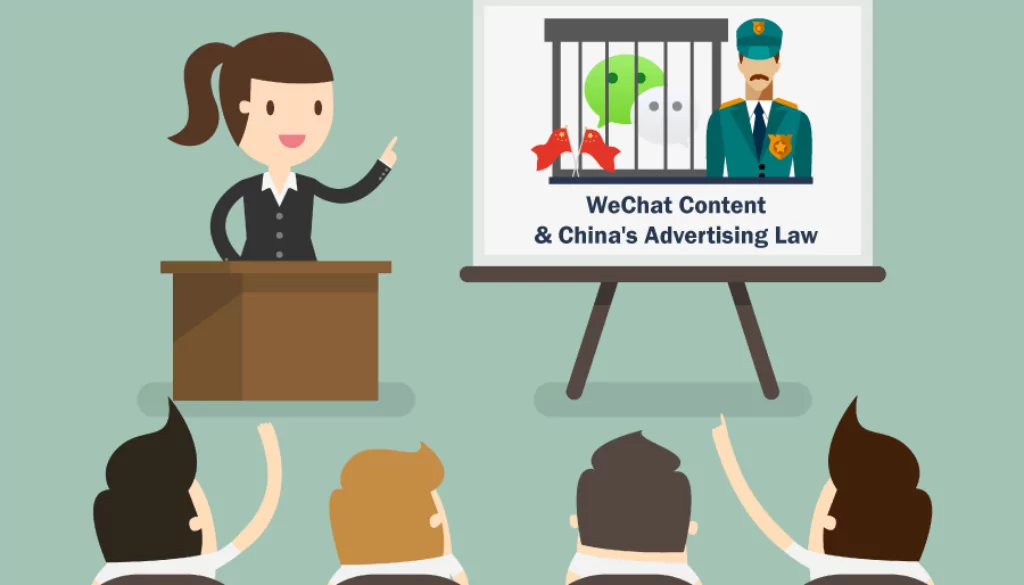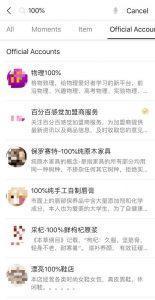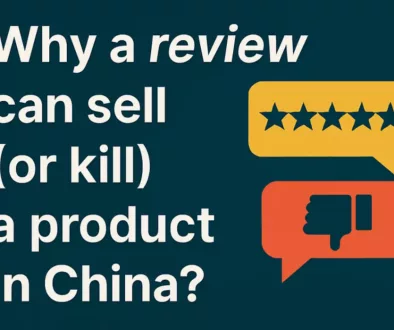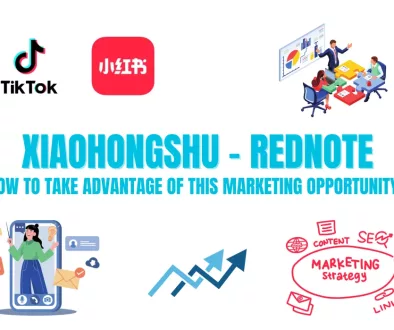Is Your Official WeChat Account Content in Breach of the Chinese Advertising Law?
Advertising law in China has taken a new turn, and is now going after the official WeChat accounts of companies and artists. More and more companies, both local and foreign-owned, are being handed penalties for using terms such as “the best”, “one hundred percent”, “first”, “most advanced”, and “lowest price” on their social media accounts.
Everything business posts on WeChat – be it content on an official account, a video via channels, or a representative posting on their moments – falls under the rules of advertising law in China. Let us reiterate this – everything. As such, WeChat has strict rules for what can and can’t be posted, to make sure businesses operate in line with national law.
Why?
It’s a priority for the government to make sure that all ads, including WeChat ads, do not misguide or mislead the public. In 2015, the national advertising law was reissued, at double the length of its previous 1994 incarnation. For any business doing WeChat marketing, it is vital to get to grips with the provisions in this law.
According to the Marketing Supervision and Administration of Jing’An district (静安区市场监督管理局曹家渡市场监管所), any information published on an official WeChat, Weibo or any other company account is as just as relevant as the information contained on an official website or in advertising material, and is therefore considered advertising.
Moreover, any individual who reports a valid violation of consumer rights in China receives a cash prize.

Needless to say, some individuals are making a living out of this legal condition, and spend their time browsing on the internet, looking for violations. Once an applicant has sent his report, the officials have two weeks to investigate and report to the higher authority as well as to the applicant. In the case where a law has been broken and the application is legitimate, the brand/social media account holder will be penalized, and the applicant will receive a prize.
What is a Violation of Advertisement Law in China?
The penalties for violating the national advertising law can be huge – from a six-figure fine to the revocation of a business license (more on that below). Furthermore, WeChat is bound by the 2016 Internet Advertising Law to self-regulate.
This means that even before any government agency gets involved, content will be taken down, accounts may be suspended and a review might be initiated. At best, this might mean a delay in a campaign or project; at worst, it might mean a complete failure.
Advertisement Regulations and Restrictions on WeChat in 2021 – What you Need to Know
Here is a summary of the important parts of the advertising law as it relates to WeChat. WeChat also has its own terms that are often being updated, and should also be taken into account when trying to create effective advertisement.
1. Avoid Superlatives on Your WeChat Posts (best, greatest, etc.)
- Up first, and (ironically) of paramount importance: no superlatives. Superlatives are the adjectives that tend to end in ‘est’, to imply the ‘most’ of something that something can be. In Chinese, the equivalent is ‘最’. Examples include ‘best’, ‘newest’, ‘cheapest’, ‘most advanced’, ‘highest’, ‘coolest’, etc.
2. Do Not Use Descriptions Relating to the Word ‘One’
- Do not use over-the-top descriptions relating to the word ‘one’. What does this mean? No describing a product, service or business as ‘one-of-a-kind’, ‘one of the top’, or ‘Top one seller’. Nothing advertised should be described as the ‘first’ of its kind, nor part of any ‘first wave’.
3. Do Not Use “Star” Rating
- Do not place a business, product or service on a subjective scale, such as ‘national’, ‘international’, ‘Grade A’ or ‘5A’, or give it an arbitrary ‘star’ rating.
4. Avoid Words such as ‘Premium’ or ‘Excellent’ when advertising on WeChat
- No words that imply attaining an upper limit or having reached an extreme. E.g. top, cutting edge, premium, top quality, excellent, ultimate, extreme, perfect, excellent, pinnacle, unprecedented, leading, unique.
5. Don’t Mention Anything Related to Scarcity (very rare, only a few available, etc.)
- This can be a bit of a spanner in the works for international marketers, for whom scarcity is a key technique. Be mindful not to use words and phrases like ‘rare’, ‘unique’, ‘hard to find‘, and ’only a few left’.
6. No Exclusivity
- Nothing related to exclusivity, especially with reference to an individual with ‘star power’ or a unique position within the creating process. For example, advertising surrounding the personal story and personal, exclusive access to, a developer, creator, founder or inventor.
7. No Words Related to Country and/or Nation
- Similar to number 2 on this list, but specifically related to country and/or nation. I.e. no claiming something to be the ‘national leader’, or of ‘international quality’, or related to a national residence/landmark.
8. Do Not Use Anything Related to Amounts of Wealth
- Language and images related to gold or large amounts of wealth, when not specifically aligned with the product or service, are prohibited. This includes pictures of coins, banknotes and foreign currency.
9. No Words Like ‘Leader’ or Similar
- When referring to brand, WeChat ads may not use the likeness or implication of being a champion, a superstar, a leader, a monarch or an emperor. They must avoid using language like ‘supreme leader’ or its analogues. In general, do not use language related to being a leader, a pioneer or being ‘brilliant’.
10. Talk about Your Brand Correctly
- Do not describe brands, products or services using the words ‘unprecedented’, ‘permanent’ or ‘omnipotent’.
11. Avoid Using Content Relating to Authority
- Do not advertise special privileges with regard to authority on WeChat – including: special supply, exclusive supply, expert recommendation, national xx leader recommendation.
12. Do Not Use Click-for-reward Tactics
- Which can be counted as defrauding consumers. E.g. no ‘Click here to receive a prize’, or ‘Congratulations on winning, click for your surprise!’ Any gifts offered in WeChat ads must include details of their name, true value, the overall quantity available and (if appropriate) the deadline for receiving them.
13. Can You Use Call-to-actions like ‘About to sell out’ when advertising on WeChat?
- Avoid any language that seeks to manipulate consumers based on changes to the product availability, price, or quantity. E.g. ‘About to sell out’, ‘the lowest price in history’, ’no down payment if you buy right now’.
14. No Discrimination!
- WeChat ads must not contain language that is discriminatory based according to class. No advertising things that are for ‘the upper classes’ or a ‘rich area’. No picking between consumers based on their perceived class.
15. Avoid Unlicensed Tie-ins with National Major Events
- For example the Winter Olympics, Olympic Games, World Cup, and Double 11 (which is registered IP belonging to Alibaba).
16. About Statistical Data on WeChat Ads
- Do not provide statistical data in WeChat ads without evidence. Evidence should have a source link, so that the public may follow up.
17. About Sales Events Advertising on WeChat
- Businesses may not make limited-time sales events, unless the dates and times are clearly stated, and those dates and times are strictly adhered to. For flash sales, weekend sales and anniversary sales, the difference between normal sales and the special event rates must be clear and accurate.
18. Some Other Dont’s to Consider before Advertising on WeChat
-
- Do not use the national flag, national emblem, national anthem
- Do not feature transportation, commercial, cultural and educational facilities under planning and under construction
- All the pictures included in the text are realistic representations
- For loan and mortgage services: provide bank name, loan/mortgage amount and term. Include info on instalments, duration and daily payments
- Only RMB is allowed for settlements, foreign currencies are not allowed
- The content of any advertisement must not be exaggerated and untrue

There are also a few marketing tricks brands no longer can use, most of which are connected to unclear time limitations, unproven or false brand history facts (since XXXX year), general historic facts (“never before”, “unprecedented in the nation’s history”), and having buttons that lead to a page different from the one indicated (“click here to receive…”), etc.
In simple terms, advertisements should be identifiable by consumers as advertisements. Mass media must not publish advertisements in disguised form, such as in the form of news reports, or ‘advertorials’. Advertisements published through mass media should be marked with “advertisements”, which are different from other non-advertising information and should not cause misunderstanding among consumers.
Other such regulations can be found in the second revision of the China’s commercial and advertisement law.
Since the authorities now have their eyes on WeChat official accounts, more and more companies are asking content providers and communication agencies to assure their content complies with the regulations.
What Will Happen to You and Your WeChat Account if You Violate the Advertising Law?
The procedure for the investigation and penalization of a social media account, including a WeChat account is quite simple. The official representatives of your district will call your office to confirm your address and will arrange a time to visit (usually the very next day). Most likely you will not know any details before their visit, except the name of the account reported.
During the the visit, representatives will ask a few questions about the sensitive content. They will check your business license and business scope, the reasons why you post on WeChat and if those posts bring you any commercial gain. This will then lead a tax-related conversation.
After the conversation, they will ask you to provide a written explanation as to why the situation arose in the first place (from “I was not aware of the law”, to “I posted it on purpose”). You will also need to support the statement with the necessary documents and contracts (in case your agency is in charge of someone else’s content, or if your content is created by a sub-contractor).
Then, all that remains is to see whether the case will be dropped, or if a fine will be applied for you to pay.
How Much is the Penalty for Violating Advertising Law in China?
Depending on the severity of the indiscretion, there are different possibilities. For breaking WeChat terms, punishments range from taking down the content, limiting or blocking the traffic to content on WeChat moments, limiting or closing an official account, to banning the company from using WeChat, period. For violating advertising law in china, fines start at 10,000RMB and stretch up to 1 million.
Business licenses may also be suspended. In short, it’s not good news; certainly not worth the risk.
Avoiding Trouble on Your WeChat Account
Firstly, make sure you or those working on your content have read the law and are not using any forbidden terms, subjects, or any of the marketing tricks mentioned above.
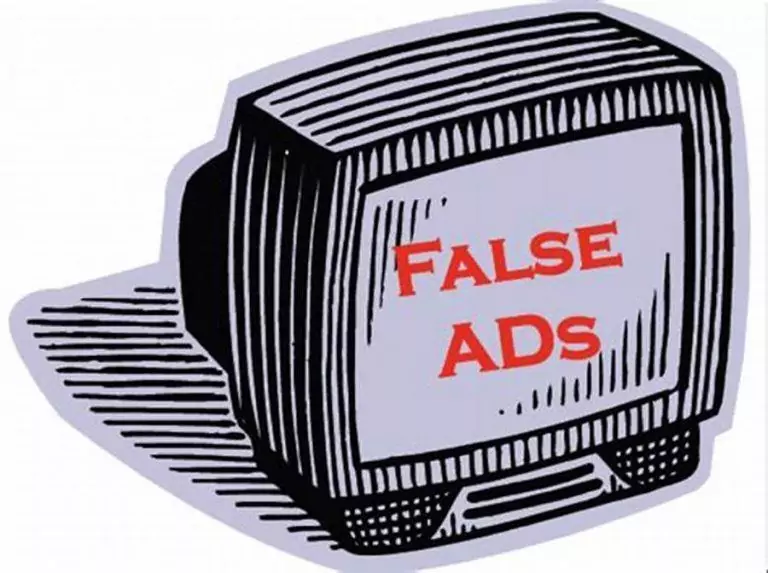
Secondly, make sure that all your existing content on WeChat account, Weibo, E-commerce platforms, Website, Mini-apps, etc. does not violate the law.
If you are concerned about this legislation and need help checking and editing the legal compliance of your content, keep in mind that HI-COM has been providing such a service for the past two years and has already helped hundreds of companies avoid legal trouble. Contact us now and get some answers for free!
If your content is already under investigation, please seek legal help.
Disclaimer: The information mentioned in the above article should not be considered as legal advice. HI-COM is not a law firm, and is not authorized to provide legal advice. However, we are in a position to proofread and edit your content in accordance with the advertising law regulations of China.
